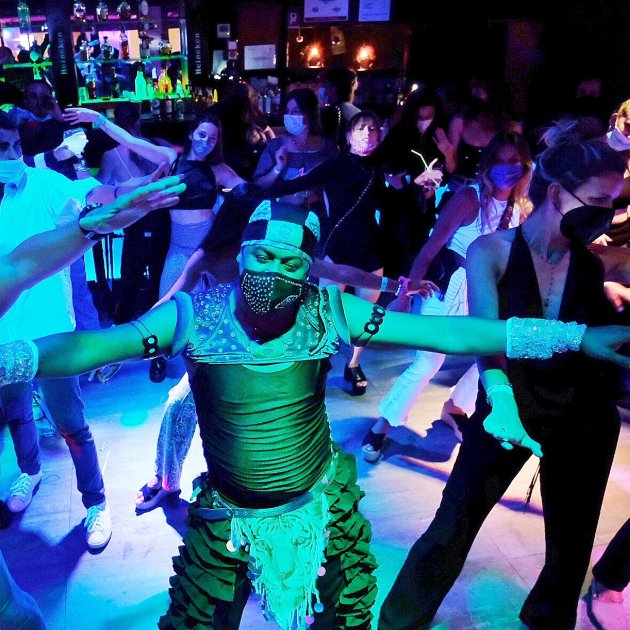After almost sixteen months of closure for Catalonia's nightlife, dance clubs and late night venues are finally set to open again this Friday 8th October - or perhaps the night of Thursday 7th in practice, since the new rules will come into force on the stroke of midnight. Today, the Catalan health and interior ministries announced details of how this reopening will work, with the most important measure being entry controls based especially on the use of the digital Covid certificate.
The implementation of this EU Covid document is undoubtedly the major new incorporation to control measures, and the Catalan government will request authorization for its use from the High Court of Catalonia this Wednesday, given that it affects fundamental rights such as equality and mobility. It is expected that the court will endorse the ruling and nightlife will open at midnight as Thursday becomes Friday, for an initial period of two weeks. With the Spanish Supreme Court having given its go-ahead to the digital certificate's use in Galicia, there is optimism that the Catalan court will approve its use here.
The digital Covid certificate
Thus, nightclub clients will "need to present their digital Covid certificate at the entrance to the establishment", as health department secretary general Meritxell Masó announced today. So that the venue can check its validity, the Catalan government is also launching a web application similar to those already operating in France and Italy.
This application will allow "verification of digital covid certificates from the European Union and the United Kingdom." Masó explained that all users have to do is present their QR code at the entrance of the establishment, which will have a camera to verify the certificate. At the same time, those entering will also need to present an ID document such as a Spanish DNI, TIE or passport to complete the entry validation.
QR code verification
When the camera has checked and verified the QR code, the word "Validat /Validado" will appear on the screen, along with the person's name, surname and date of birth on a green background. In this regard, the health secretary mentioned that "there will be no data storage" in order to respect fundamental rights.
It should be remembered that the QR code of the digital Covid certificate records three different Covid statuses which all give the holder the right to enter an establishment: either that the user is fully vaccinated, has had a negative PCR test result, or has fully recovered from the Covid illness. The document, therefore, helps to make the reopening of nightlife safer for people in a variety of situations.
Hours, drinking, masks, dancing and capacities
Nightclub opening hours will return to what they officially used to be. That means, until 5am from Sunday to Thursday, and until 6am on Friday and Saturday nights. "It will be the same as always," said interior ministry secretary general Oriol Amorós.
One area where a Covid limit remains: the rule will be that drinking and dancing don't mix. That is, you can drink - whether seated or standing - but if you head for the dance floor, you have to put on a mask and leave your drink. Finally, the maximum capacity will be 70% for the first fortnight. If the epidemiological situation continues to improve, this capacity figure may rise.
Nightlife open in Sitges / Europa Press
These measures bring an end to a situation obliging establishments to keep records of people accessing the establishments and maintaining personal distance to avoid contacts. There is, however, not much optimism regarding the ability to enforce mask-wearing on the dance floor: "The responsibility for the mask is individual. We know that the establishment staff will help, but they are not security guards." Amorós pointed out.
Masó remarked that the reopening of nightlife comes with an "epidemiological situation that is good". “Now we have to be prudent, move slowly towards normality,” she added, before praising the sector’s “willingness” to reach agreement on measures.
Main image: People dancing during the pandemic in a nightclub in Sitges / ACN
